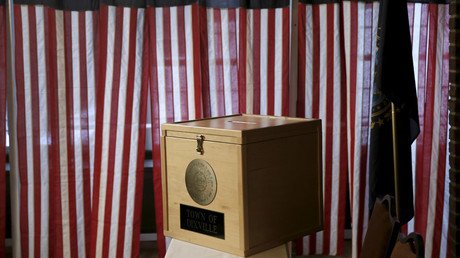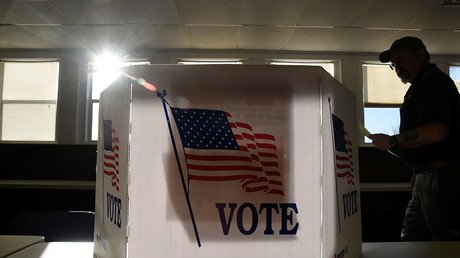'Unconstitutional partisan gerrymander': Wisconsin must redraw legislative districts

A three-judge panel has ordered Wisconsin officials to redraw the state's legislative districts before the 2018 election. The ruling comes after the state's current district boundaries were part of an "unconstitutional partisan gerrymander."
The court order, issued on Friday, demands a redistricting plan to be approved by November 1, 2017. The state's Department of Justice, however, is expected to file an appeal with the US Supreme Court.
In November, the panel ruled against the state's current legislative district layout, saying it was unconstitutional and "was intended to burden the representational rights of Democratic voters... by impeding their ability to translate their votes into legislative seats."
Wisconsin is so gerrymandered that it's one of several states where the GOP lost the legislative popular vote yet maintained power in 2012 pic.twitter.com/DPpk4RTalc
— Stephen Wolf (@PoliticsWolf) January 27, 2017
The federal panel said Friday that the state's Republican-led legislature and Republican Governor Scott Walker should devise a new district map. This was a rejection of requests made by plaintiffs in the case, who called for judges to make the final determination.
Wonderful news. Walker and cronies have played hell with redistricting in Wisconsin. https://t.co/bPgfxnkgZk
— York (@PPJudkins) January 27, 2017
"It is neither necessary nor appropriate for us to embroil the court in the Wisconsin Legislature’s deliberations," the panel wrote in its decision.
Nevertheless, plaintiffs, represented by the Campaign Legal Center, hailed Friday's decision as a "monumental victory... for all Wisconsin voters."
Crap! This is so unfair. How is GOP minority to retain Koch Bros control of Wisconsin with honest leg maps? #redistrictinghttps://t.co/xXDysywFhJ
— The Gipper (@RealRonaldRegin) January 27, 2017
"Today, the court made a clear statement that holding yet another unconstitutional election under Act 43 would cause significant harm to the voters," said Gerry Hebert, director of voting rights and redistricting at the Campaign Legal Center, according to the Wisconsin State Journal. "Rest assured that our plaintiffs will continue to be involved in this process, monitoring the legislature’s actions and assuring that the new plan meets all the legal requirements."
The Fair Elections Project, which brought the case in 2015 to challenge district maps put in place by Walker and GOP lawmakers in 2011, said it would not appeal the aspects of the order that did not go the Democratic plaintiffs' way, the Milwaukee Journal Sentinel reported.
"The court is making the right decision to implement their verdict, and we are pleased that Wisconsin is on its way to having honest elections," said Dave Schultz, a former Republican state senator and current co-chairman of the Fair Election Project. "I hope the Legislature chooses to conduct this new map-drawing process in an open, transparent manner, heeding the concerns of multiple federal panels."
The panel rejected the state's request for a postponement of any redrawing activities until the US Supreme Court has considered the case. Regardless, the state indicated it will appeal the decision.
"We are reviewing the court’s order, but we expect to file an appeal with the Supreme Court and seek prompt reversal of this decision," Johnny Koremenos, a spokesman for the state Department of Justice, said Friday.
Redistricting challenges in the US go directly from special three-judge panels to the US Supreme Court, bypassing appeals courts. The Wisconsin case specifically involves the State Assembly, but those districts inform State Senate districts, as each Senate parcel is made up of three Assembly districts.
State Democrats have already called for public redistricting hearings, the Milwaukee Journal-Sentinel reported.
In the November decision, the panel found that Wisconsin State Assembly district maps were drawn to heavily favor Republicans in the elections of 2012 and 2014. In 2012, Republicans won 60 of the 99 Assembly seats despite more votes going to the Democratic Party, the panel reported.















